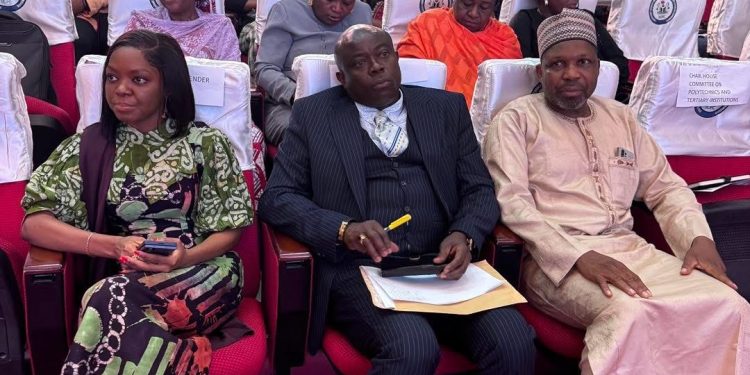By Nkechi Eze
The Independent Corrupt Practices and Other Related Offences Commission (ICPC) has reiterated the urgent need for Nigerian tertiary institutions to move beyond rhetoric and fully implement the Model Sexual Harassment Prevention Policy. The renewed call came during a one-day stakeholders’ engagement held on Thursday at the ICPC headquarters in Abuja, co-hosted by the Commission, Gender Mobile Initiative, and the Federal Capital Territory (FCT) Education Secretariat.
According to a statement by ICPC spokesperson, Demola Bakare, the event was part of a broader effort aimed at encouraging the adoption of the Model Anti-Sexual Harassment Policy at the state level. The engagement brought together education sector stakeholders, civil society groups, student representatives, and policymakers in a collective push to institutionalise effective mechanisms for preventing and responding to sexual harassment in Nigerian schools.
In his remarks delivered on behalf of the ICPC Chairman, Dr. Musa Adamu Aliyu, SAN, the Secretary to the Commission, Mr. Clifford Okwudiri Oparaodu, DSSRS, reaffirmed the Commission’s resolve to tackle corruption in all its forms, including the abuse of office manifested through sexual harassment within educational institutions. He noted that the ICPC’s longstanding collaboration with Gender Mobile Initiative and the Ford Foundation has been instrumental in the development of a Model Sexual Harassment Prevention Policy, which aligns with the Commission’s mandate under Section 6 of the ICPC Act.
Dr. Aliyu stressed that while many institutions already have internal mechanisms to address harassment, the model policy provides a uniform framework that reflects global best practices and can help institutions strengthen or upgrade their existing policies. “Sexual harassment is not only a form of Sexual and Gender-Based Violence; it is a form of abuse of office and a crime,” he said.
He further explained that the initiative supports Gender Mobile’s Campus Safety Initiative (CSI), which deploys technology and education as tools to prevent harassment. He emphasised that collective effort is crucial to success, stating, “If you want to go fast, go alone, but if you want to go far, go together.” He also revealed that the Commission, with support from the Ford Foundation, has developed additional model policies for secondary and basic education institutions, which have received the approval of the Federal Ministry of Education and are now accessible on the ICPC website.
Dr. Aliyu urged schools to adopt or adapt the model policy according to their specific contexts and highlighted the importance of sustained engagement, noting that “no one, irrespective of age, status, or gender, is immune from being a direct or indirect victim of sexual harassment.”
Speaking at the event, the FCT Mandate Secretary for Education, Dr. Danlami Hayyo, commended the collaborative efforts of ICPC and Gender Mobile Initiative in advancing institutional frameworks to curb sexual harassment in schools. He described the issue as a pervasive menace that undermines the rights of victims to participate fully in society, and urged educational institutions to lead the campaign against it.
Dr. Hayyo further stressed that while sexual harassment often stems from power imbalances, it can also occur among individuals of equal status. He called for a zero-tolerance approach to such behaviour and urged institutions to ensure confidentiality for survivors and complainants.
A highlight of the event was a detailed presentation by the Executive Lead of Gender Mobile Initiative, Barrister Omowumi Ogunrotimi, who outlined the components of the Campus Safety Initiative Framework. She gave an overview of the Anti-Sexual Harassment Policy, Bystander Intervention strategies, Preventive Education programmes, the CampusPal App for incident reporting, and an advocacy brief aimed at building institutional capacity for prevention and response.
The keynote address was delivered by Hon. Akintunde Rotimi, Spokesperson of the Federal House of Representatives, who was represented by Mr. Temidayo Taiwo Sadiq. Additional goodwill messages were delivered by the Senior Special Assistant to the President on Student Engagement, a representative of the National Female Students Association of Nigeria (NFSAN), the Executive Secretary of the National Universities Commission (NUC), and a representative of the National Board for Technical Education (NBTE).
The event concluded with the presentation of a communiqué and closing remarks, signalling a renewed commitment by all stakeholders to implement tangible and sustainable measures to prevent sexual harassment within Nigeria’s educational system.















